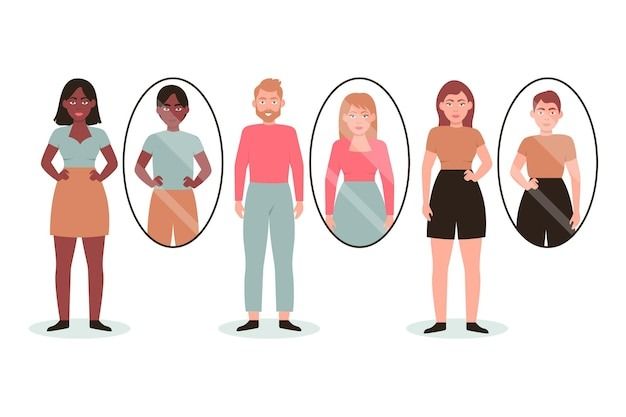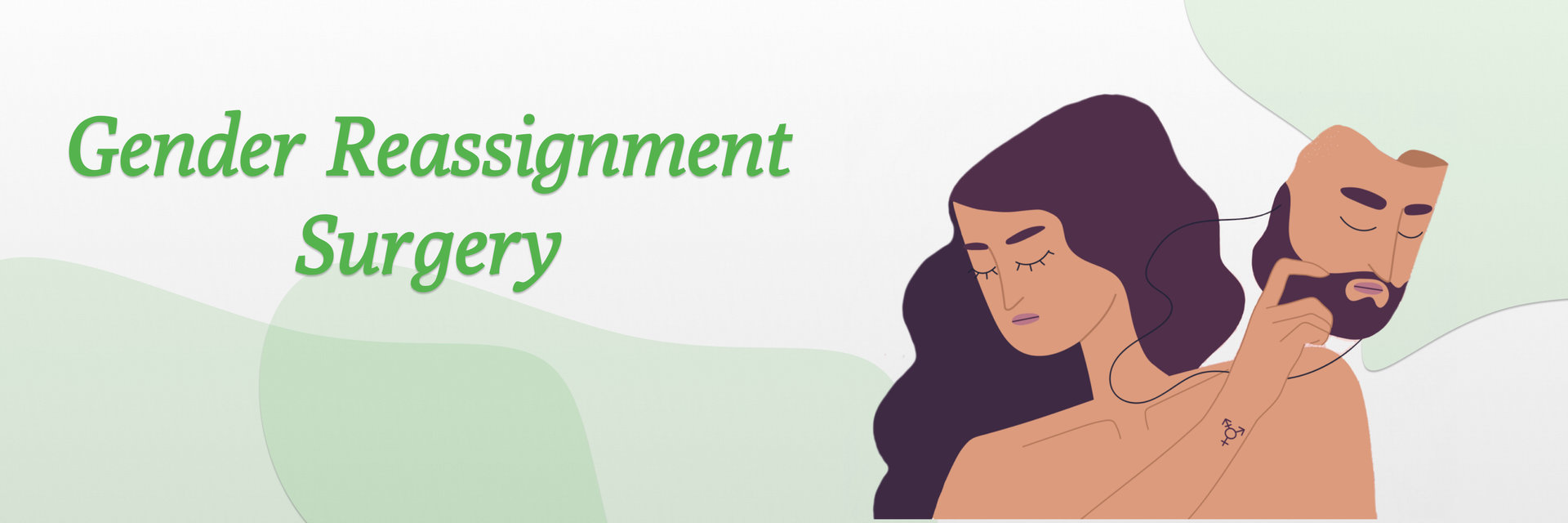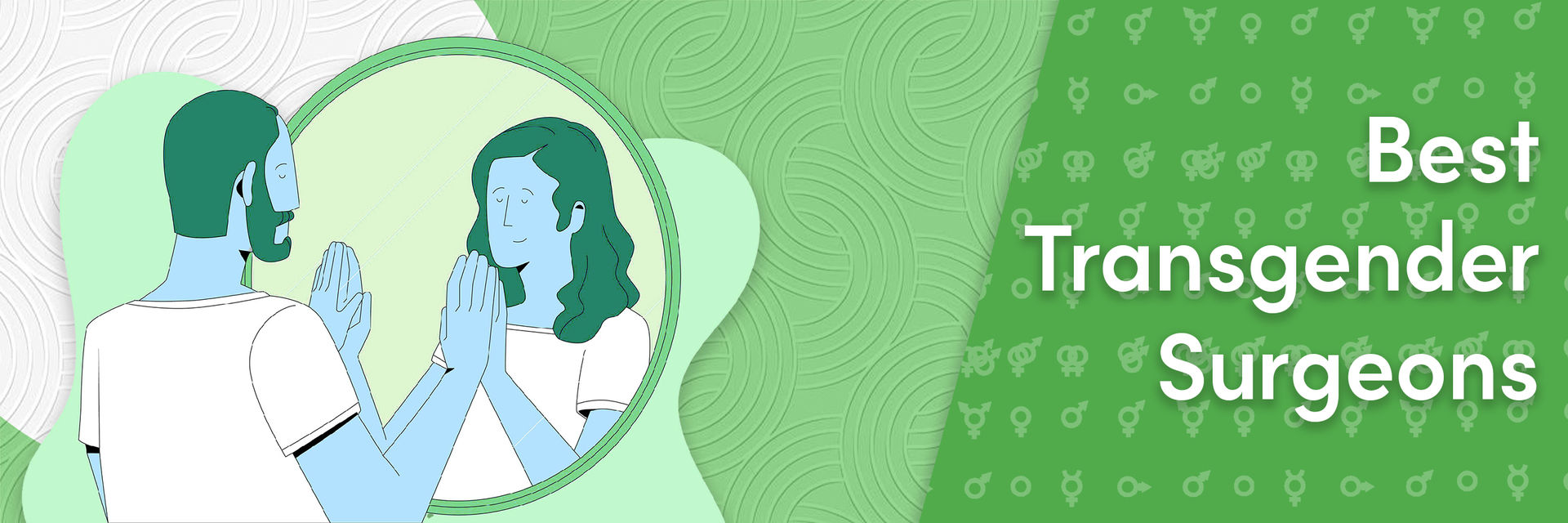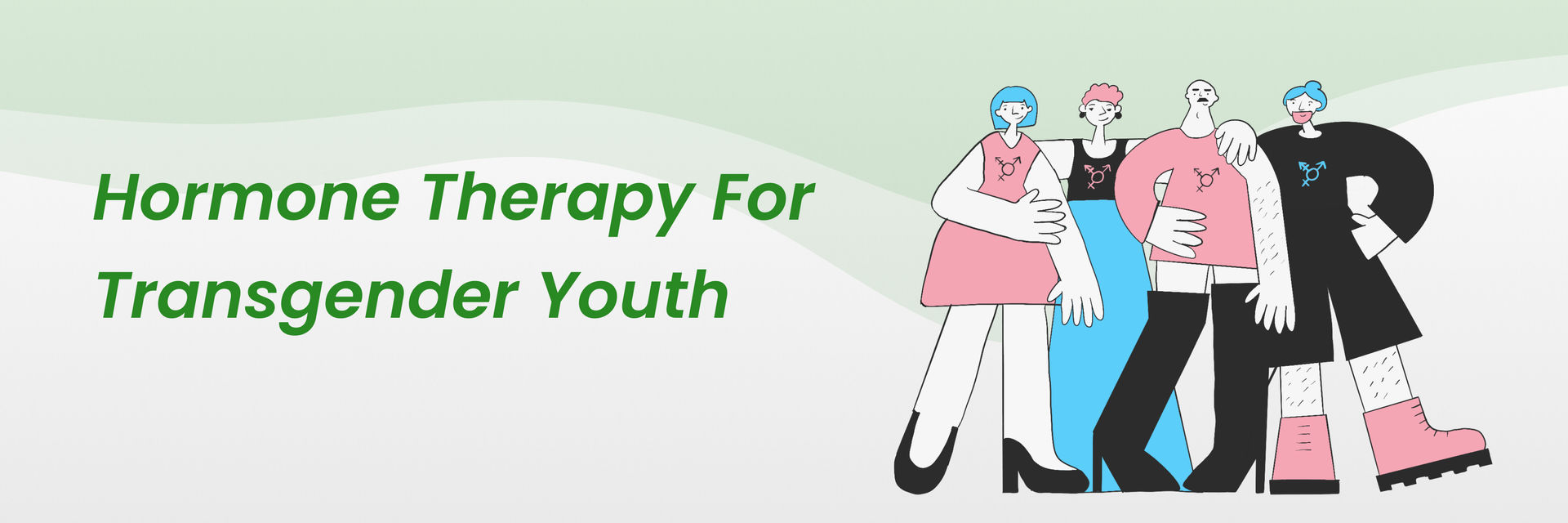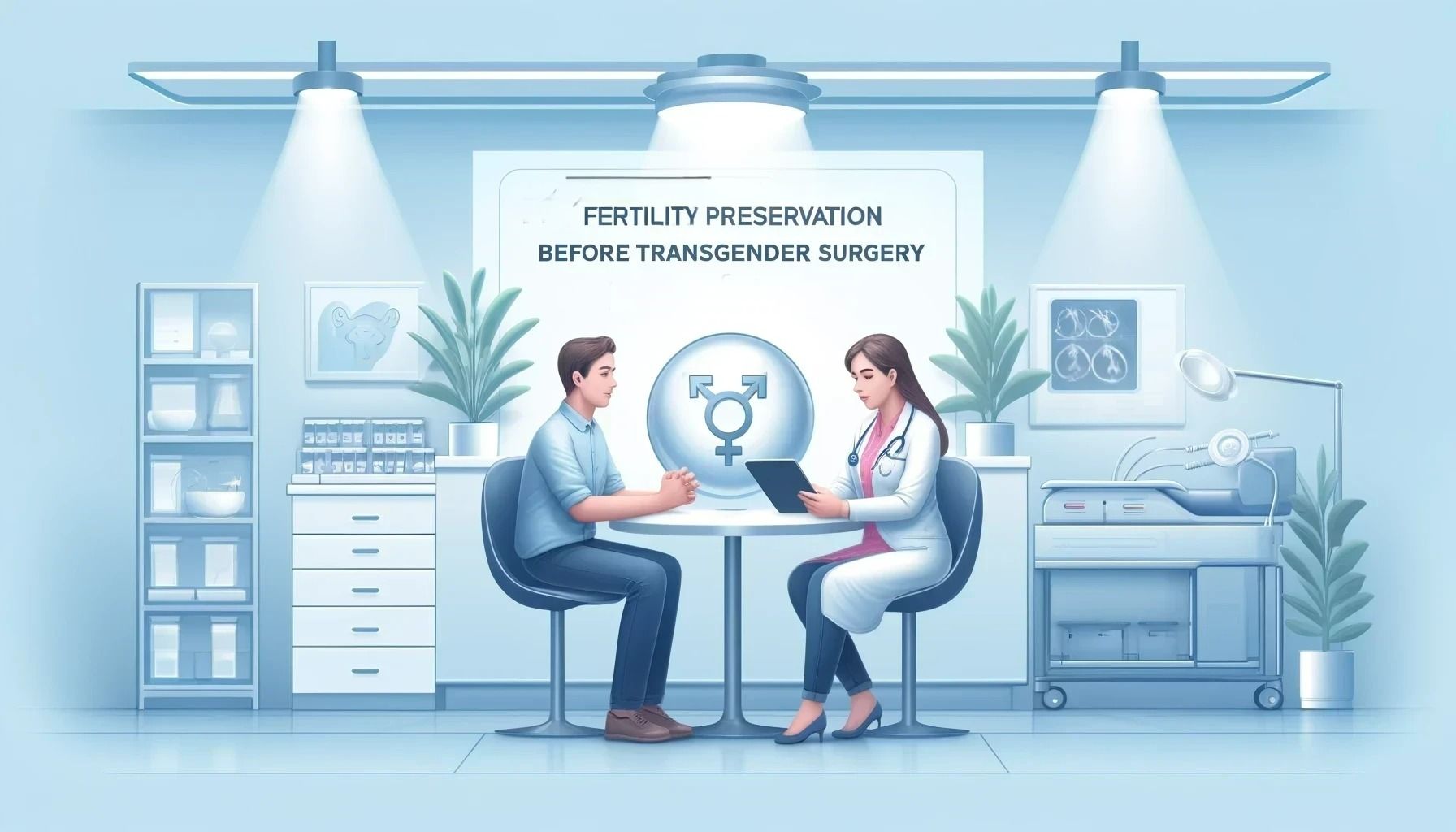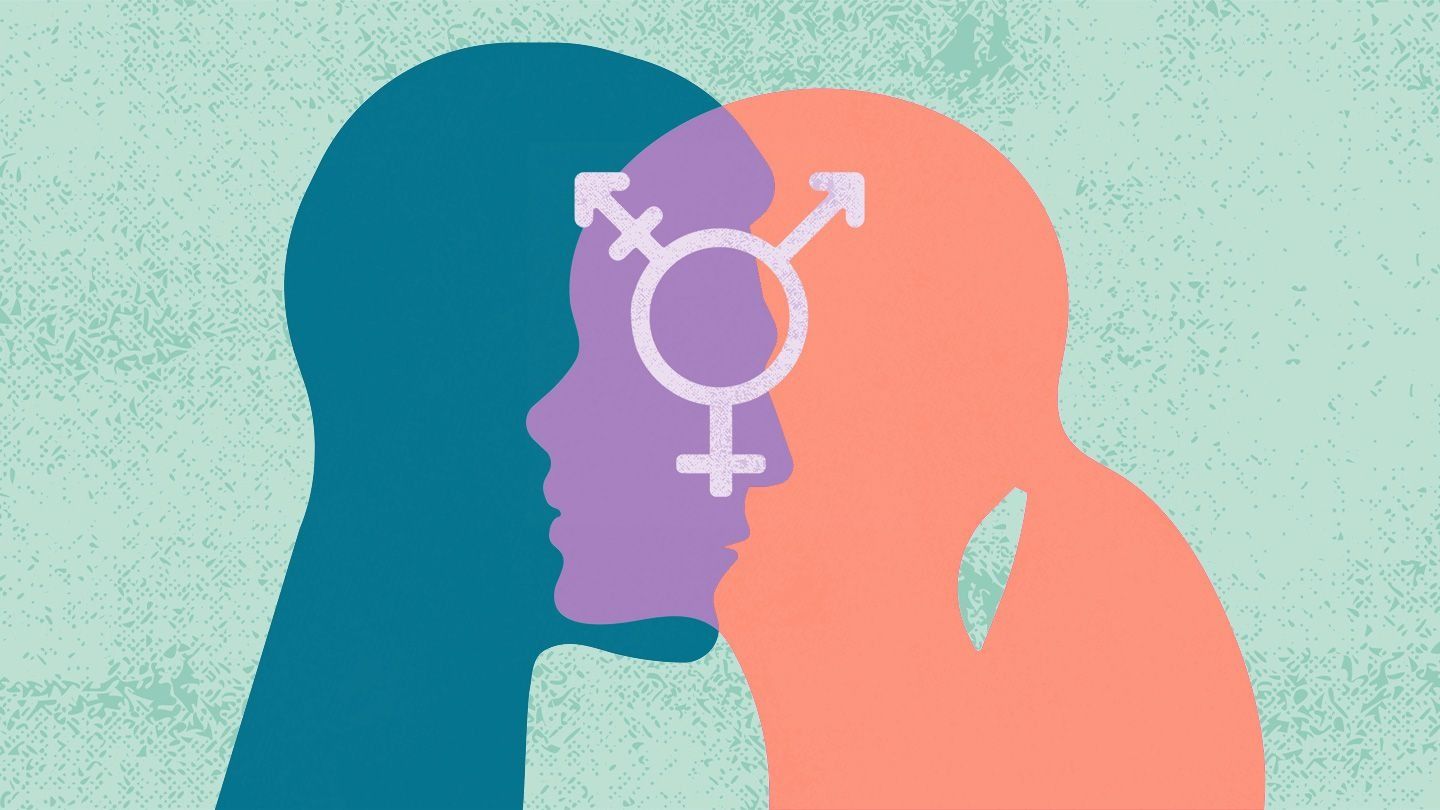Overview
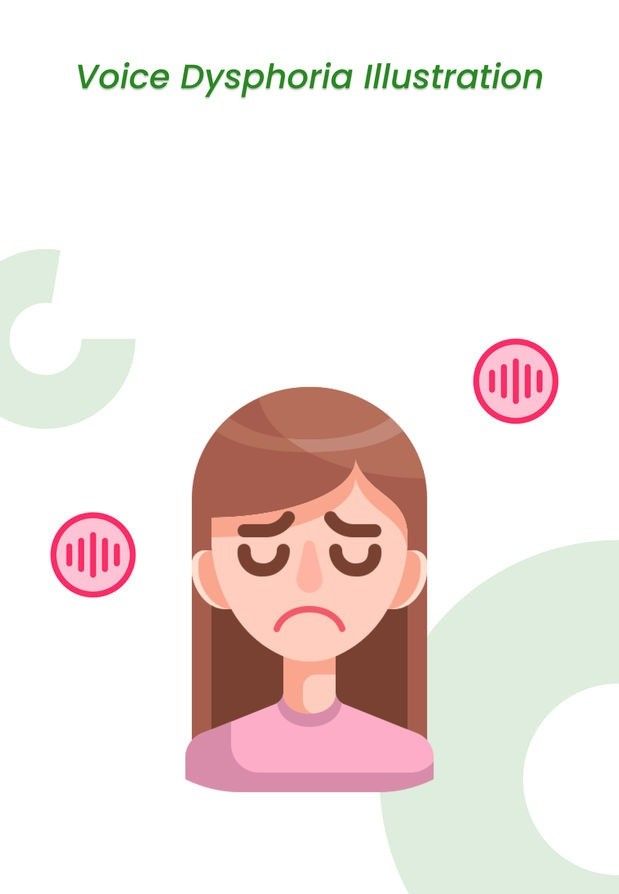
For many transgender individuals, the sound of their own voice can cause distress, known as voice dysphoria. This mismatch with gender identity—whether in pitch, resonance, or speech patterns—can result in anxiety and social withdrawal. Up to 71% of transgender individuals face this issue.
Voice dysphoria is also called vocal dysphoria. For trans men, having a high-pitched voice with feminine resonance may cause a disconnect with their male identity. On the other hand, transgender women may feel uncomfortable with a lower and deeper-pitched voice that carries a masculine resonance, not aligning with their female gender identity. This discrepancy in voice can impact their sense of self and gender expression.
Take charge of your health with the best treatment. Book your consultation now.
Now, let's see what are the possible causes!
What Causes Voice Dysphoria?
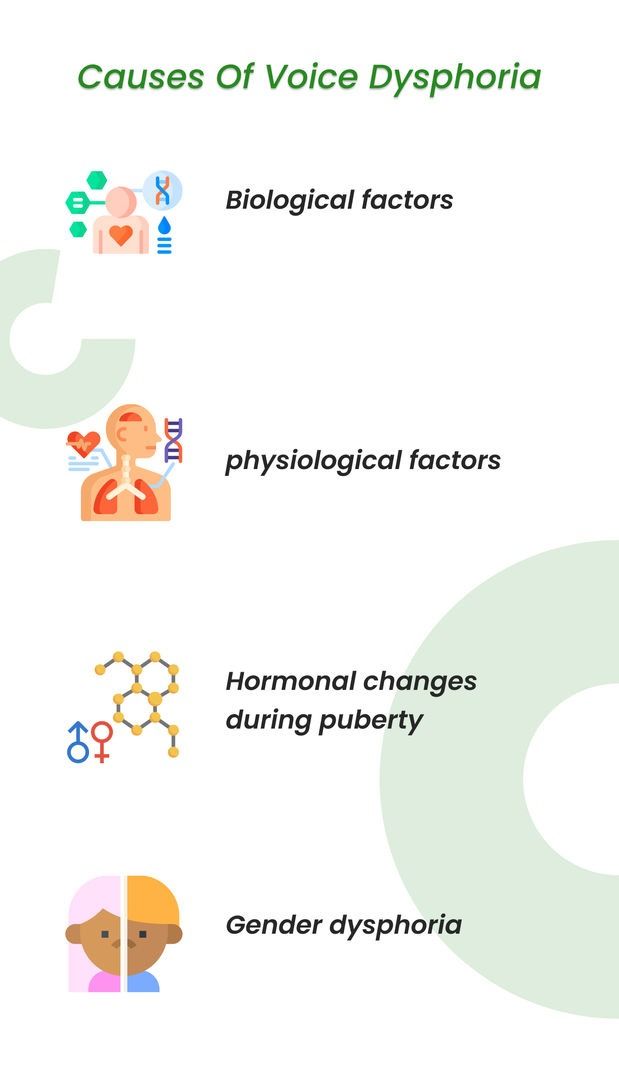
Voice dysphoria in transgender individuals arises from a complex interplay of biological and social factors:
1. Biological Factors:
- Neurology: Differences in brain regions governing voice perception and production might contribute to a mismatch between how a person hears their voice and how they understand their gender identity.
- Hormones: Testosterone during puberty plays a key role in vocal fold development, leading to naturally deeper voices in men. Hormone therapy can modify pitch over time, though not significantly alter vocal fold structure.
- Genetics: Some research suggests genes may influence vocal characteristics, potentially contributing to the susceptibility to voice dysphoria.
2. Social Factors:
- Gender Norms: Societal expectations on "masculine" and "feminine" voices create internal conflict for transgender individuals.
- Misgendering: Frequent misgendering based on voice reinforces feelings of dissonance and dysphoria.
- Lack of Representation: Limited positive portrayals of diverse voices hinder acceptance and validation for transgender individuals.
Take the first step to recovery. Get in touch with us for your treatment.
What Are the Types of Voice Dysphoria?
There are several types of dysphoria that can be seen in transgender people:
- Pitch dysphoria: When the pitch of the voice is too low or too high and does not match with the gender the person identifies him or her as. Here the person faces difficulty in resonating their voice with their gender identity.
- Prosody dysphoria: Prosody refers to the patterns of stress, intonation, and rhythm in speech. Some transgender individuals may feel that their prosody doesn't match their gender identity, such as feeling that their speech is too monotone or lacks the appropriate emotional inflection.
The voice dysphoria has varying degrees of impact depending upon the individual. Voice therapy and other interventions can help transgender individuals achieve a voice that aligns with their gender identity and reduce the distress caused by voice dysphoria.
Read ahead to learn about the symptoms to better understand your situation!
What Are the Symptoms of Voice Dysphoria?
Voice dysphoria makes people anxious, depressed or stressed. Voice dysphoria causes people to feel uncomfortable because they feel that their voice does match their gender identity and feel distressed with their own voice.
Some of the symptoms of voice dysphoria are:
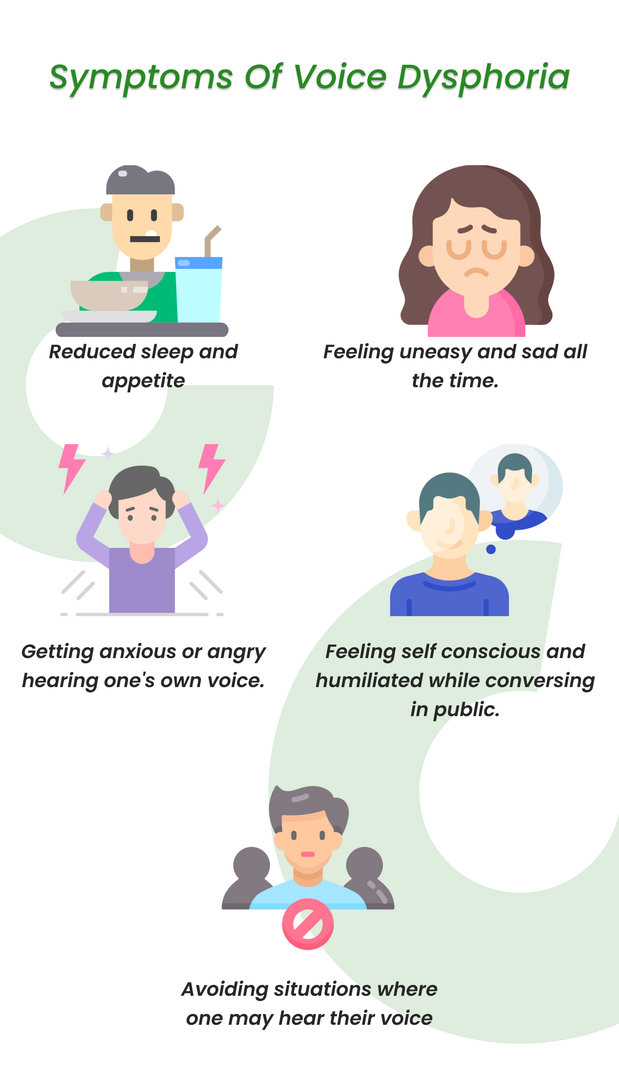
How Does a Person Feel When They Have Voice Dysphoria?
Some common descriptions of how people with voice dysphoria might feel:
- Discomfort and distress: Hearing their own voice can feel alien or jarring, causing anxiety, sadness, or frustration.
- Dissociation: Feeling disconnected from their voice, as if it doesn't belong to them or doesn't accurately reflect their gender identity.
- Self-consciousness and shyness: Avoiding speaking in public or social situations due to fear of being misgendered or drawing attention to their voice.
- Reduced confidence and self-esteem: The feeling that their voice is a constant reminder of their incongruence with their desired gender presentation.
- Hope and possibility: With access to voice therapy, surgery, or other supportive measures, many individuals overcome voice dysphoria and find their voice aligned with their true selves, bringing a sense of relief and joy.
Your well-being is our priority - call us to book your appointment today
Thinking if voice dysphoria can be diagnosed? Continue reading to learn about it!
Diagnosis of Voice Dysphoria

While there isn't a single, definitive test for diagnosing voice dysphoria, a combination of approaches can help healthcare professionals arrive at a diagnosis. Here's how it typically works:
Initial Consultation:
- The first step involves a conversation with a healthcare professional, usually a therapist, counselor, or speech-language pathologist.
- During this conversation, the person will be asked about their experiences with their voice, including:
- Dissatisfaction with pitch, resonance, or other vocal qualities
- Distress or anxiety caused by their voice
- Impact of voice dysphoria on daily life and social interactions
- Desire to modify their voice to better align with their gender identity
Assessment Tools:
- Standardized questionnaires like the Gender Voice and Communication Measure (GVCM) or the Voice Incongruence Questionnaire (VIQ) may be used to assess the severity and specific aspects of voice dysphoria.
- Additional tools like voice recordings and perceptual tasks can be used to analyze vocal characteristics and their alignment with the person's gender identity.
Medical Examination:
- In some cases, a physical examination of the vocal folds by an otolaryngologist may be conducted to rule out any underlying medical conditions affecting the voice.
Psychological Evaluation:
- While not always necessary, a psychological evaluation might be recommended to address any potential mental health concerns related to voice dysphoria or ensure the person is mentally prepared for any potential interventions.
Now it’s time that we talk about the most crucial thing, the Type of treatments available for voice dysphoria. Keep reading to know more!
Treatment for Voice Dysphoria

The voice dysphoria treatment is also called Gender Affirming voice care. It involves speech therapy for gender dysphoria helping in feminizing, masculinizing, and neutralizing the voice. Voice care with a speech therapist is strictly advised before and after laryngeal surgery.
Voice Dysphoria Treatments for Transmen:
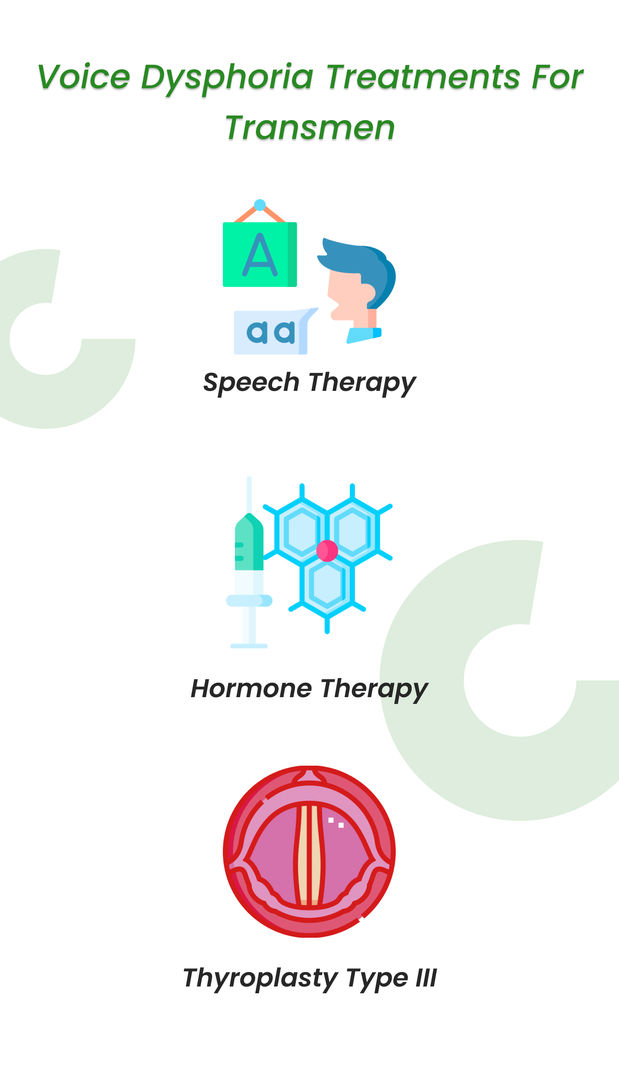
Treatment Name | Description |
| Voice Therapy |
|
| Hormone Therapy |
|
| Thyroplasty Type III |
|
Voice Dysphoria Treatments for Transwomen
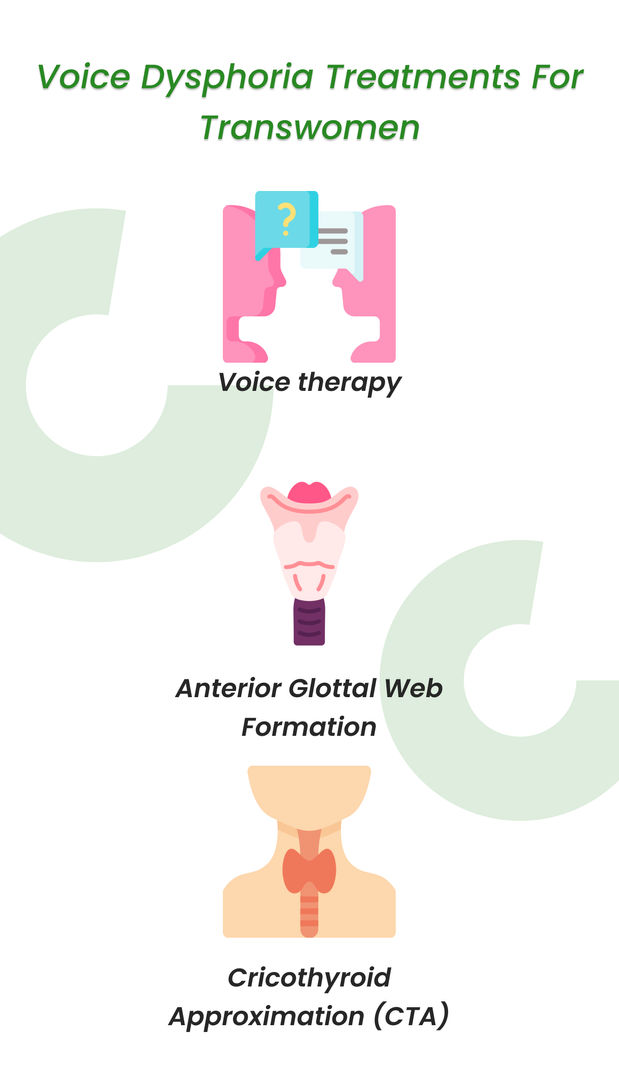
| Treatment Name | Description |
| Voice therapy |
|
| Anterior Glottal Web Formation |
|
| Cricothyroid Approximation (CTA) |
|
So what are you thinking?
Take charge of your health and your life. Contact us today!
What Happens If Voice Dysphoria in Transgender is Left Untreated?
Untreated voice dysphoria can cause distress and impact the quality of life significantly.
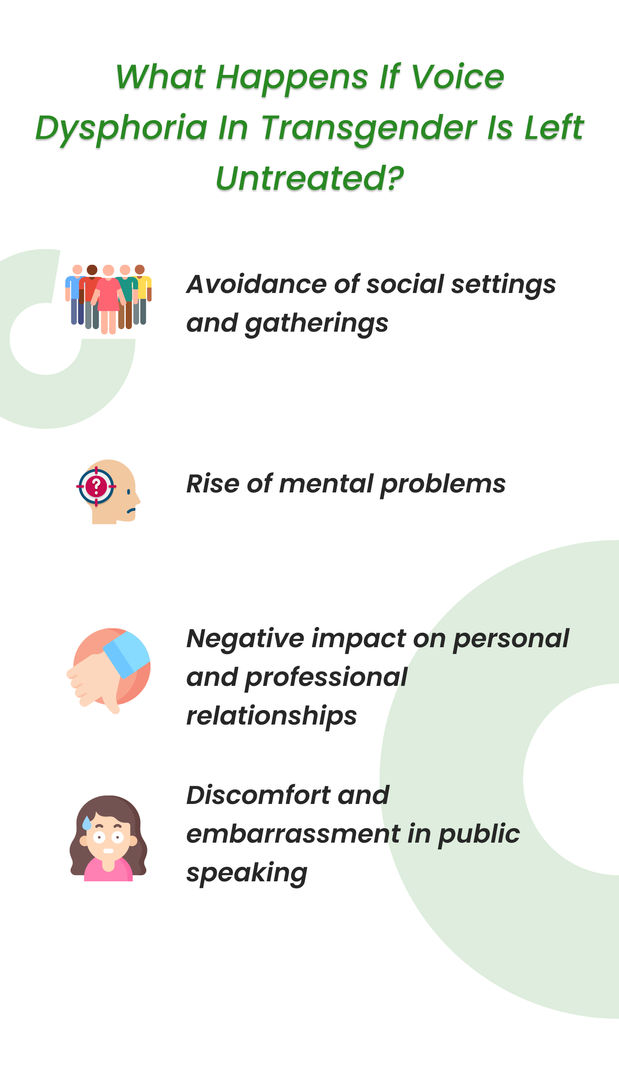
Some of the outcomes of leaving voice dysphoria untreated are:
- Trying to avoid social settings and gatherings: This leads to isolation and loneliness, negatively impacting mental health.
- Gives rise to mental problems: Untreated Voice dysphoria leads to stress and anxiety, giving rise to mental problems.
- Impacts personal and professional relationships: Voice dysphoria makes people uncomfortable and hence they are not able to communicate effectively. This impacts their personal and professional relationships.
- Discomfort and embarrassment in public speaking.
Overall, everything mentioned above affects the quality of life in transgender people, if Voice Dysphoria is left untreated.
Does insurance cover voice dysphoria treatments for transgender people?
Insurance coverage for voice dysphoria treatments for transgender individuals varies greatly depending on several factors, including:
Location:
- United States: The Affordable Care Act prohibits most types of health insurance from categorically excluding services for transgender people. However, it doesn't mandate coverage for specific procedures. Some states have individual legislation requiring coverage for voice therapy or surgery within Medicaid or commercial plans.
- Other countries: Coverage laws and policies across the globe differ significantly. Some countries provide comprehensive coverage for voice dysphoria treatments, while others offer limited or no support.
Type of insurance plan:
- Private insurance: Coverage for voice dysphoria treatments under private insurance plans can vary widely. Some plans exclude all transgender healthcare, while others cover specific treatments like voice therapy or speech feminization surgery (SFS) after meeting certain criteria.
- Medicaid: Coverage for voice dysphoria treatments under Medicaid varies by state. Some states explicitly cover voice therapy and SFS as part of gender-affirming care, while others exclude them or require preauthorization.
Treatment type:
Voice therapy
- This is typically the most accessible and readily covered treatment option, often falling under speech therapy benefits.
Hormone Therapy:
- Not directly tied to voice, but hormonal changes can naturally alter vocal pitch over time.
- May be covered under hormonal therapy benefits for gender transition.
Speech Feminization Surgery (SFS):
- Less common coverage compared to voice therapy.
- Often requires meeting specific criteria like gender dysphoria diagnosis, completed hormone therapy, and psychological evaluation.
Have some more questions related to voice dysphoria?
Then do not miss reading the below FAQs.
You might get an answer to your question!
Frequently Asked Questions

Q1. Can voice dysphoria contribute to other mental health issues?
Yes, voice dysphoria can exacerbate conditions like depression and anxiety. It's important to seek comprehensive care that addresses both voice dysphoria and any associated mental health challenges."Yes, voice dysphoria can exacerbate conditions like depression and anxiety. It's important to seek comprehensive care that addresses both voice dysphoria and any associated mental health challenges."
Q2. What kind of doctors to see for voice change?
To get your voice reaffirmed one can visit ENT specialists. They are also called Otolaryngologists. They can help in the surgical procedures for changing the voice. While, along with that you must visit a voice pathologist who will help you with voice therapy which is an effective method to change your voice if you want to avoid surgeries.
Q3. How do people cope with Voice Dysphoria?
Different people cope with dysphoria in different ways. Here are some of the ways that can help the transgender to cope with voice dysphoria:
- Express what you feel
- Talk to someone who understands your situation
- Listen and talk to people having similar feelings
- Get your gender aligned with your voice
- Self introspect, think about the positive side of your voice and what you love about it.
